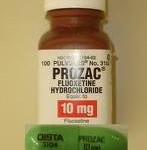Whilst science is busy understanding why 50% of people don’t respond to the SSRI anti-depressants – fluoxetine (Prozac or Sarafem), citalopram (Celexa), paroxetine (Seroxat or Paxil) and sertraline (Zoloft),  or experience severe side-effects (see the study led by Professor Rene Han, professor of pharmacology in the Departments of Psychiatry and Neuroscience at Columbia University, published in the January 2010 issue of the Journal Neuron and also the work at Michigan by Dr John Traynor, professor of pharmacology at the U-M Medical School and director of the U-M Substance Abuse Research Center, published in Proceedings of the National Academy of Sciences) – someone may have forgotten to tell your doctor.
or experience severe side-effects (see the study led by Professor Rene Han, professor of pharmacology in the Departments of Psychiatry and Neuroscience at Columbia University, published in the January 2010 issue of the Journal Neuron and also the work at Michigan by Dr John Traynor, professor of pharmacology at the U-M Medical School and director of the U-M Substance Abuse Research Center, published in Proceedings of the National Academy of Sciences) – someone may have forgotten to tell your doctor.
And given that anti-depressants are one of the most over-prescribed drugs on the market – SSRI use increased from from 14.7 million in 2005 to 16.2 million in 2006 in the UK and 118 million prescriptions were written for antidepressants in the USA in 2005, I would think very carefully before asking my doctor for them. Doctors tend to prescribe them more when asked by their patients. The mental health charity MIND reported that 93% of GP’s have prescribed drugs due to ‘lack of alternatives.’ (In fact, there are many). Continue reading →

